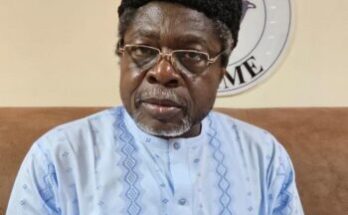By Abdulrazaq Magaji
President Macky Sall of Senegal is one African leader after my heart. A few weeks into his presidency, the man took one look at the balance sheet and decided that the interest of the country would be better served by a single-chamber parliament and simply abrogated the upper house. He was convinced and, the people of Senegal agreed with him, that the unwieldy two-chamber parliament he inherited was a drain on the economy. His action must have conserved much-needed funds for the country.
The call for a review of Nigeria’s National Assembly assumed a new dimension in the last few years following the realisation that the parliament has become a drain on the economy. It all started when former Governor of the Central Bank of Nigeria and now Emir of Kano, Muhammadu Sanusi II revealed that nearly a quarter of the federal budget goes into servicing the false lifestyle of federal lawmakers. The lawmakers did not help the situation by involving themselves in unwholesome practices such as bribe-taking, extortion and forging or falsifying official documents and budget proposals for the purpose of corrupt enrichment.
Unlikely voices have joined the call of late. Worried by the unacceptable level of corruption among lawmakers and as part of events to mark his 75th birthday, former military president, General Ibrahim Babangida echoed the position of The Guardian and supported an arrangement where legislative duties will be conducted on part-time basis as a cost-cutting measure and a way to break the cycle of corruption at the National Assembly. The former president revealed that the idea was high on the agenda of his government in 1989. His views echoed similar ones by Joe-Kyari Gadzama, SAN, in a recent presentation on the issue.
Chief Gadzama had argued that aside saving cost, part-time legislative work will enrich the democracy project at much lower cost because it is the only way to encourage professionals who do not wish to abandon their primary callings to the National Assembly. He even suggested the idea of reserving seats in the National Assembly for professionals, as practised in some developing democracies, who will also operate on part-time basis as other members.
Still as part of cost-cutting measures, there are those who believe Nigeria should operate a single-chamber National Assembly. In one of his major contributions to constitution making some three decades ago, President Olusegun Obasanjo made a robust case for a unicameral or, single-chamber legislature for Nigeria which he said best suited developing countries. In his words, bi-cameral or, double-chamber parliaments are generally unwieldy and wasteful for developing countries. Problem is that on two different occasions, President Obasanjo had the opportunity to grab the front-page and twice he demurred!
Honestly, it is still puzzling that President Obasanjo passed up the glory of the revolutionary idea. Who knows? Had he pushed for a single-chamber parliament instead of busying himself with wasting precious time and money of Nigerians in the attempt to stretch his tenure, President Obasanjo’s aspiration to the fatherhood of the nation would probably have been adequately vented. But, that is as far as it could get!
Aside its unadvertised role as job-placement agency, the best-known benefit of double-chamber parliament, which is suitable for and, desirable in comparatively rich and literate democracies, is that it allows for checks and balances! Here, the impression one gets is that the upper house, supposedly made up of level headed people is capable of checking the supposed excesses of their supposedly hot-headed juniors in the lower house. It is devoid of commonsense to even imagine that this perceived benefit applies to Nigeria.
Developing democracies have no need for double-chamber parliaments. Aside being financial sink holes, double-chamber parliaments are mere duplication of roles and functions. With two unwieldy, often-bickering and scandal-prone houses, Nigeria’s National Assembly with some four hundred and fifty mostly half-educated and mostly-lazy federal legislators is a major drawback. And, mind you, the grouse here is not with representation in terms of numbers. With a population estimated at one hundred and sixty million, the National Assembly may not be overpopulated.
Trouble has always been the unreasonable and unrealistic chunk of the federal budget that services the false life style of a disingenuous few in a vast plain of poor, struggling people. If self-regulation, a synonym for checks and balances is the main attraction of a double-chamber legislature, it could be better achieved through a less-costly, result-oriented and effective single-chamber assembly with a good mix of supposed cool headed and supposed hot headed members. To achieve this is to retain the present 350 federal constituencies with legislators working on part time basis. In any case, the present arrangement of observing a 181-day legislative year is part-time, anyway!
Aside baiting professionals to bring their expertise to the table, part-time legislative work will eliminate the do-or-die approach to election to the National Assembly which many see as an instant route to wealth. This is misplacement of priorities which in turn shuts out serious-minded people and thereby robs the National Assembly of the services of the best minds. Nigerians cannot continue to be represented by or, subsidise the false style, of poor quality lawmakers some of whom are stark illiterates anyway!
History beckons! As the Buhari/Osinbajo administration steadies itself, it may not be a bad idea to look toward progressive lawmakers in seeking ways to reform the National Assembly.
Magaji wrote from Abuja via [email protected]



